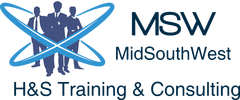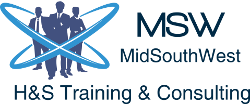What you Need to Know about Machine Safety and Machine Guarding Requirements in Ontario
|
Machine safety includes many rules, guidelines, and recommendations. In addition to the administrative controls, most machines feature physical built-in safety mechanisms, such as guards or emergency stops.
While different machines have different safety specs, there are some general best practices for safe machine use. |
Machine safety training should include a review of manufacturer's recommendations for safe use, the SOP, machine guarding and the required
Safe Machine Use
|
Never Remove or Circumvent Machine Guards
Most machines have engineered safety or machine guards that are specially designed and in place to keep users safe from entanglement, crush, cut and other various catastrophic injuries. Sometimes, operators find ways to work around machine guards without removing them. This is not safe. Despite the belief that some machine guards negatively impact productivity, guards are in place to ensure that the user can continue to safely use the machine. Never remove, prop open, or otherwise circumvent machine guards. If you must remove the guard for maintenance or cleaning, locking out the machine is mandatory. Machine Guarding safety training is essential for safe operations. |
See a hazard?
|
Lock-out / Tag-out TrainingOur Lock-out / Tag-out Training program is designed to conform to required legislation and provides participants with the knowledge necessary to understand the principles of different energy sources that need to be controlled and special circumstances that need to be considered. |
Practice Lockout Procedures
Lock out any machine before performing maintenance to completely disconnect it from its power source. This prevents the accidental movement or operation of machine parts during service. Be sure to perform lockout before cleaning or servicing machines, too. Even if the procedure is minor, such as removing a piece of material that’s become stuck, lockout the machine to prevent accidental use or discharge of power that could result in an accident or fatality. |
|
Avoid Loose Clothing and Wear Required PPE
Entanglement, entrapment, pinching, and otherwise getting caught in moving parts are primary hazards associated with machine use. To reduce the risk, avoid loose clothing, scarves, ties, etc. If safe machine use requires wearing PPE, be sure to do so. You may require safety glasses, cut-resistant gloves, or masks, depending on what the machine does. Not sure how to wear your PPE? We have training for that! |
Maintain the Machine
All machines come with manufacturer recommendations for service and maintenance including cleaning, lubrication, part replacement, etc. It is crucial to follow all manufacturer recommendations to keep the machine running at peak safety and performance and as part of safe operations. |
|
Report Problems
Keep machines in good working order so they remain safe for use. However, wear and tear happen, and some parts may simply have defects. If you notice any deficiencies, potential hazards, or other problems, report them immediately to your supervisor. Machines that are not safe for use need to be locked out. Put them out of service until they’re repaired and declared safe for use. Report missing, defective, or modified machine guards right away. |
On-the-Job TrainingOn-the-job training is mandatory before using any machine. Ask for training if you need to use a machine you’ve never used before. Machine safety training includes a review of the manufacturer’s recommendations for safe use, the SOP, machine guarding, and required PPE. If you aren’t sure if you require training, ask your direct supervisor or JHSC worker member.
|
Trust MidSouthWest Training and Consulting
MidSouthWest Training and Consulting provides Machine Guarding Safety Training and Lockout/Tagout Training. We also have a robust catalogue of eLearning courses available.
You can trust MidSouthWest Training and Consulting to provide you with cost-effective training solutions tailored to meet your organization’s unique health and safety needs.
To learn more, contact us online or call 289.309.1143. Visit us 24/7 on the web at midsouthwest.ca.
You can trust MidSouthWest Training and Consulting to provide you with cost-effective training solutions tailored to meet your organization’s unique health and safety needs.
To learn more, contact us online or call 289.309.1143. Visit us 24/7 on the web at midsouthwest.ca.
Last updated September 12, 2022




